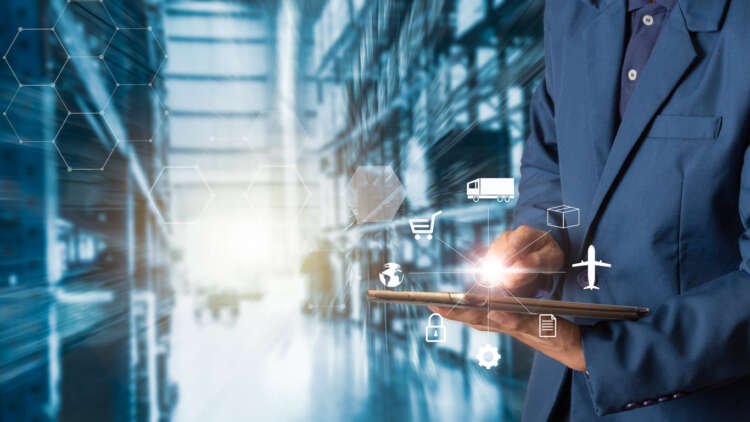The Future of Automated Logistics


By Phill Davies, Co-Founder & Commercial Director at Magway
The pressure on businesses to enforce robust eco-agendas, and stick to them, is constantly mounting. Last year’s COP26 put topics such as greenwashing under the spotlight and proceeded to hold those with few environmental goals accountable. Ultimately, the conference made net-zero and eco-friendly practices a core principle for businesses and organisations of all shapes and sizes going forward. As well as the regulatory pressure, consumer pressure is also growing as customers become more conscious of which businesses they are supporting. Boycotts of certain companies have become a regular occurrence in recent years. However, despite the growing pressure to become sustainable, many businesses still have no green agenda.
According to a survey conducted by YouGov for energy firm World Kinect Energy Services, 40% of small and medium enterprises (SMEs) don’t have a sustainability plan. In addition to this, 30% don’t have any intention of adopting one. SMEs account for 99.9% of the business population in the UK, which is 5.6 million businesses. This means SMEs will have to drastically accelerate their sustainability plans if the UK is to reach its net zero target by 2050. In fact, they will have to act faster than this. A new directive from the UK Chancellor of the Exchequer, Rishi Sunak, will soon require UK-listed companies to release net-zero plans by 2030. With all this pressure mounting, it can be hard for businesses to know what to do.
A good place to start is logistics. The Department of Transport states that road transport accounts for around a fifth of the UK’s total CO2 emissions. Businesses can make the switch to sustainable delivery services to improve their company’s environmental accountability. More widely, this will also help push the logistics industry towards hitting net-zero.
With this effort in mind, lower emissions automated delivery systems are now starting to make their mark. Magway, for example, is an all-electric zero-emissions delivery system, combining linear motor and control technology to propel deliveries through a network of pipes less than one meter in diameter. Magway doesn’t rely on battery power and can, when connected to a renewable energy source, deliver goods without releasing any emissions into the atmosphere.
Other automated forms of logistics are also growing in momentum, such as drones. During the Covid-19 pandemic, Windracers drones were utilised between Cornwall and the Isles of Scilly to support the NHS with Covid-19 logistics. The drones are the only ones in their field which have a capacity of up to 100kg over 1,000km. This process allowed supplies to be delivered to St Mary’s NHS hospital in just 30 minutes when there was a mass shortage of HGV drivers and supplies. Elsewhere, around 80,000 houses in Northampton now have access to overground robot deliveries thanks to Starship Technologies. As low or zero-emissions technologies, Magway, Windracers and Starship Technologies will revolutionise the logistics industry by considerably reducing pollution levels.
Whichever way businesses decide to change, the most important thing is that they must start taking their first steps now. Pivoting to clean deliveries can shift the entire operating context for companies, which could be an aspect deterring change. Furthermore, a move to green deliveries will not only improve individual businesses’ sustainability but will also help push the entire logistics industry to net-zero. There are processes in place to help make the switch easier for business leaders and encourage greater environmental awareness. Several organisations exist to help companies reach their eco-targets, and to guide them with non-existent sustainability agendas. For example, the Mission Possible Partnership is an alliance of climate leaders focused on supercharging decarbonisation across the entire value chain of the world’s highest-emitting industries in the next 10 years. Similarly, the Glasgow Financial Alliance for Net Zero (GFANZ), aims to bring together existing and new net-zero finance initiatives in one sector-wide coalition. GFANZ currently contains over 450 financial firms across 45 countries.
In the end, it has been made clear to businesses and individuals alike, that major changes must be made to stop the rapid progression of environmental destruction. Greenwashing is still a common occurrence, and a lack of green consensus is evident in a myriad of businesses and industries. Legislation and consumer pressure is mounting, and businesses need to begin shifting towards a net-zero way of operating. Creating a sustainable, smart integrated logistics ecosystem including systems like Magway is an essential step in moving companies towards a more carbon neutral future. Businesses now need to take the first step and embrace this opportunity.
Explore more articles in the Business category











